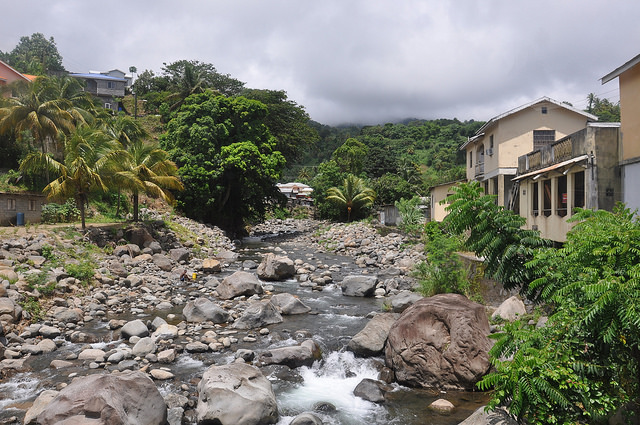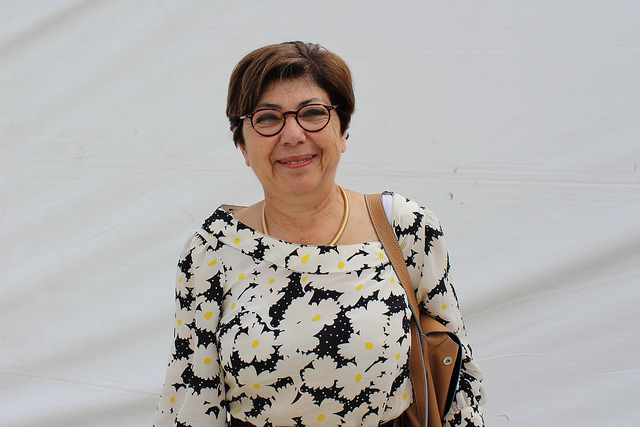Billions of Dollars Available for Reducing and Reversing Land Degradation

GEORGETOWN, Jan 30 (IPS) - The United Nations Convention to Combat Desertification (UNCCD) has debunked the notion that there is no funding available for countries to prevent, reduce or reverse land degradation.
UNCCD Executive Secretary Monique Barbut says there are millions of dollars available for Land Degradation Neutrality (LDN) projects that are based on sound scientific guidelines and human rights principles, as set out in the Convention's Scientific Conceptual Framework for LDN.
The LDN concept represents a paradigm shift in land management policies and practices by providing a framework to counterbalance the expected loss of productive land with the recovery of degraded areas.
To date, more than 100 countries have embarked on national processes to set and implement voluntary LDN targets as part of their contribution to the third target under Sustainable Development Goal (SDG) 15 (life on land).
"We have about 125 countries which have decided to set what we call their LDN targets. But we are difference from many other conventions. We have decided to also follow up on the implementation," Barbut told IPS. She was speaking to IPS at the 17th Session of the Committee for the Review of Implementation (CRIC17) of the UNCCD which opened in the Guyana capital on Monday, Jan. 2.
"We have said targets are not enough. We would like now for the countries to go for what we call the transformative projects. This is where the funding discussion comes up because those transformative projects are usually large scale. We are not taking about pilot projects of 200,000 dollars here and there."
The Executive Secretary said countries can rest assured that if they want to go into major projects, UNCCD will finance the pre-feasibility exercise.
She explained that "major projects" are which cost a minimum of 5 million dollars and can run into hundreds of millions of dollars. She pointed to China and India as examples where large scale transformative projects have been implemented.
"Nobody can say that the funding is not available. None of those transformative projects is yet at a stage that we are going for the funding outside," Barbut said.
"I have been, prior to this position, the CEO of the GEF (Global Environmental Facility) which is the largest funding mechanism of the world; and I am going to tell you something which might surprise you. The lack of funding is never a problem. The problem is to get the right project. If you have a good project, I can tell you that the funding is always available."

Barbut said UNCCD wants to help countries identify and build projects, as well as help them go for the funding at a later stage "to all those big international multilateral and bilateral institutions."
"To give you an example, we are working with Burkina Faso in Africa. They have decided to transform 3,000 of the 5,000 villages that they have into what we call eco-villages. By doing that, they will restore two million hectares of degraded land and they will give jobs to almost one million people," she said.
"This project is going to be between 150 million to 300 million dollars and I have no doubt that we will raise funds because it's going to be done in a way that donors will accept."
"Many developing countries say there is no funding, I am saying no. The project that you are presenting are not right or rightly presented to attract the donors. Our job is to help you to make them attractive enough," Barbut added.
She cited the Gambia as another example where the necessary political will was demonstrated when the entire government, including the president, decided to go for a very large-scale project and put their full GEF allocation into it.
"It means, already, we have about 12 million dollars secured. Just by doing that, showing the world that they were willing to put their full allocation into that, we have already got IFAD, a big global multi-lateral financial institution which has said, we're ready to add 45 million dollars," Barbut explained.
"So, without even yet having the project being designed, we know that we have about 55 million dollars for that project that we are going to set up in the Gambia."
Meanwhile, Dr. Richard Byron-Cox, action programme alignment and capacity building officer at UNCCD, also said that funding is available, but he said Caribbean countries have several problems.
The first of these problems, he said, is that in the Caribbean, most people are not trained to deal with the ramifications of applying for these funds.
"Sorry to say this, but some of these funds they have such a bureaucratic procedure and our people are not trained as to how you prepare projects and how you beat that bureaucracy," he told IPS.
"The second problem is that we are not interested. We really don't go out and look for it. In other words, it is there for the taking but we are not aggressive towards it."
Additionally, the Guyanese national said that until recently, Caribbean countries always thought that their problem was only climate change and so their only focus was on climate change and getting money for it.
But Byron-Cox said there was yet another problem which Caribbean countries faced.
"A lot of those who give us money never really want to give us money for land. They would prefer to give you some money to build a hospital because when you build a hospital, everything comes from the donor abroad – the windows, the doors, the toilet and the engineers who build it. So, they give you 10 million dollars and the 10 million dollars goes back to them," he explained.
"Outside of that, whenever anything breaks in the hospital or if you need new machinery you have to go back to them again. So, at the end of the day they gave you 10 million dollars but they end up getting 20 million dollars."
Byron-Cox said because Caribbean countries know that donors are not usually willing to give money for land, they do not bother to ask.
He said the time has come for governments in the Caribbean to appoint an environmental overseer who covers the entirety of the environment in each country.
"One of the roles of this environmental czar would be to find the necessary resources. If we had a regional approach where the expertise is shared it might be easier to tackle this question," Byron-Cox said.
"I have no doubt that the funding can be found. It is there and if we go searching for it, we can get it. It is there, we have to go out there and aggressively look for it."
© Inter Press Service (2019) — All Rights Reserved. Original source: Inter Press Service
Where next?
Browse related news topics:
Read the latest news stories:
- Venezuela's Oil trapped in Hurricane Trump's Onslaught Friday, April 25, 2025
- Purple Saturdays Movement: Afghan Women Fight for Rights, Justice, and Freedom Friday, April 25, 2025
- African Giving Practices: Understanding a Tradition of Generosity and Community Support Friday, April 25, 2025
- Reclaiming Equity: Why G20 Must Center Women, Children & Adolescents in the UHC Agenda Friday, April 25, 2025
- US Plans at Restructuring May Include World Bank, IMF & UN Agencies Friday, April 25, 2025
- Kashmir Reels After Pahalgam Attack, Fear Long Term Impacts on Livelihoods Friday, April 25, 2025
- Sudan situation ‘absolutely devastating’ as UN ramps up food aid Friday, April 25, 2025
- UN Security Council condemns Jammu and Kashmir terror attack Friday, April 25, 2025
- Destitution and disease stalk Myanmar’s quake survivors Friday, April 25, 2025
- From border control to belonging: How host communities gain from empowering refugees Friday, April 25, 2025
Learn more about the related issues: